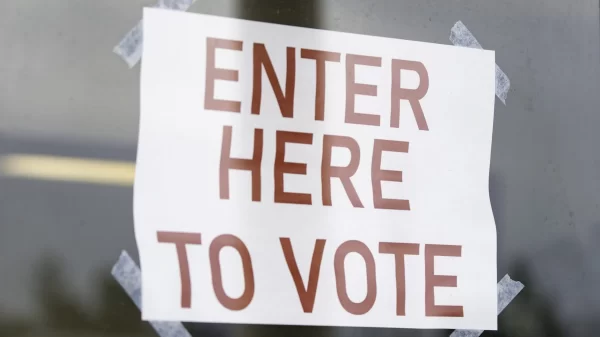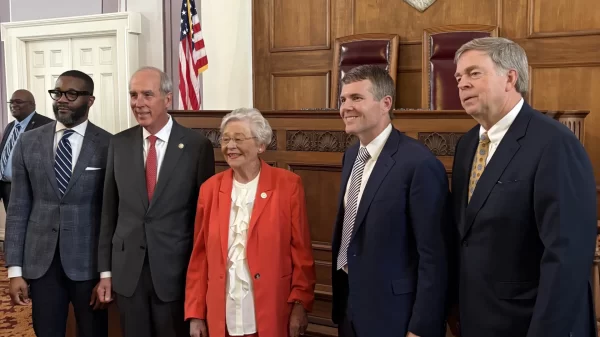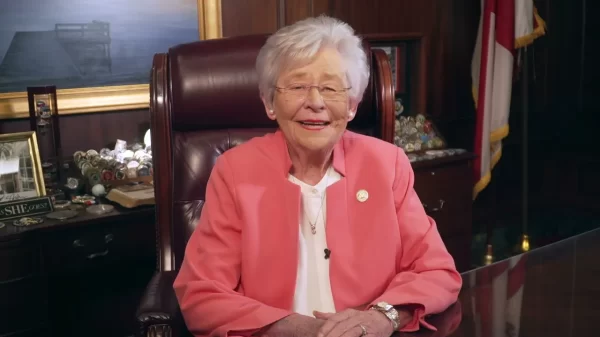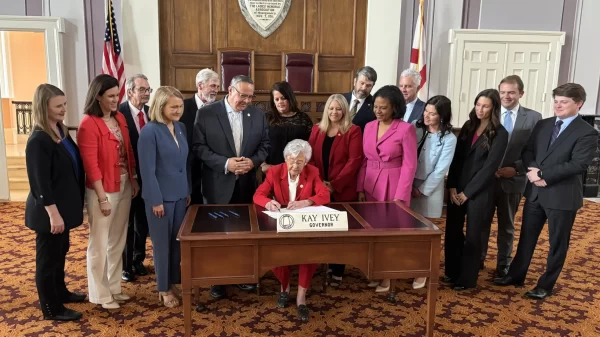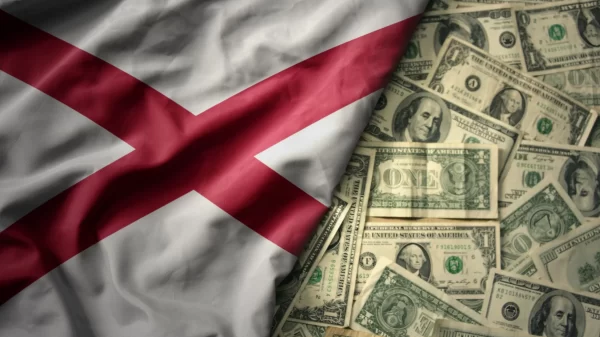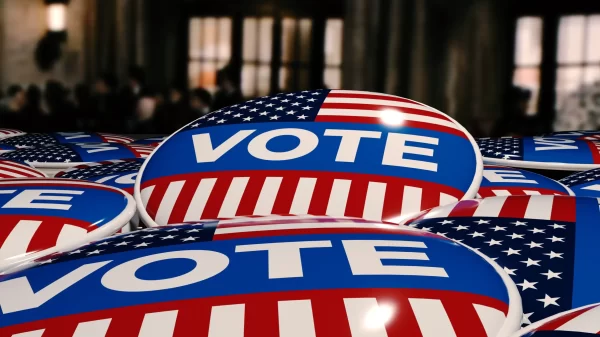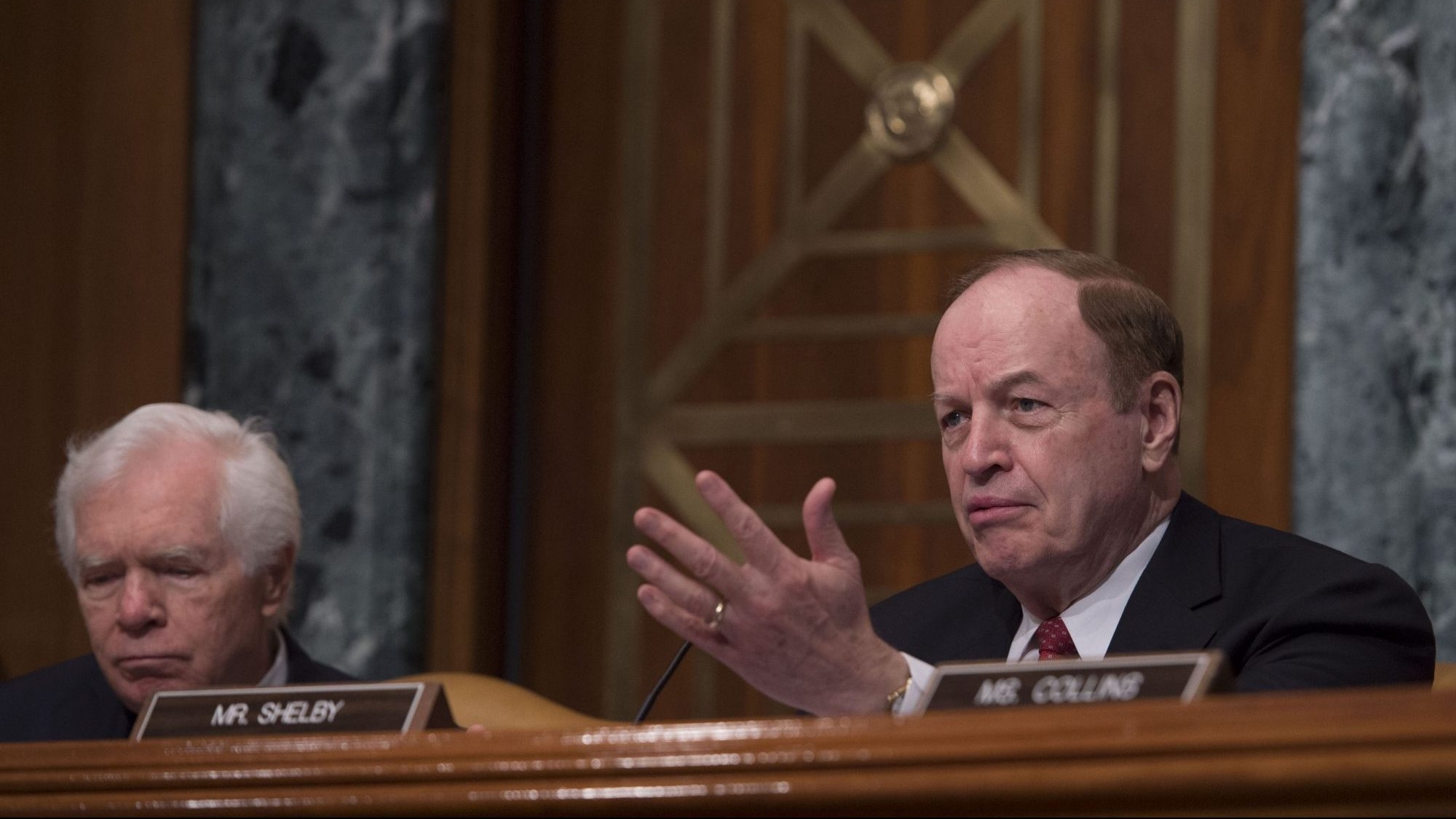Senate Appropriations Committee Chairman Richard Shelby of Alabama, Senate Majority Whip John Thune and Senate Commerce Committee Chairman Roger Wicker, all Republicans, released “The Coronavirus Economic Stabilization Act of 2020” as part of the broader Senate economic response package.
Sponsors say that the legislation would allow the Treasury Secretary to provide up to $208 billion in collateralized loans and loan guarantees to American industries whose operations are jeopardized as a direct result of the coronavirus outbreak.
Of the $208 billion, $58 billion is allocated to facilitate liquidity in the airline sector, and an additional $150 billion is provided for the same purposes in other distressed sectors of the American economy.
Shelby insisted that the legislation does not provide grants to or bailouts for the airlines or other industries.
“American businesses didn’t cause this crisis, and aggressive action is warranted to ensure they have the liquidity necessary to weather its direct impacts,” said Sen. Shelby. “But let’s be crystal clear about what we are and are not doing here. We are not bailing out the airlines or other industries – period. Instead, we are allowing the Treasury Secretary to make or guarantee collateralized loans to industries whose operations the coronavirus outbreak has jeopardized. In my judgment, this approach strikes an appropriate balance between providing assistance and protecting taxpayers.”
“These are extraordinary times that require swift and bold action from the federal government,” said Sen. Thune. “The legislative proposals we’re announcing today, while not a silver bullet, rise to the occasion. They provide critical tools to industries throughout the country that help support the entire U.S. economy and have been pummeled by the ongoing coronavirus outbreak, at no fault of their own. I look forward to supporting these and other measures that will continue to support American families and small businesses, strengthen our economy, and give our nation’s health care community the tools it needs in this fight.”
“The global coronavirus pandemic requires strong and decisive action from the federal government,” Sen. Wicker said. “During this time of unprecedented economic uncertainty, it is critical that air carriers and other impacted industries have the resources they need to continue operations. This recovery package would support the hard-hit workers and businesses who bear no responsibility for this crisis.”
The Coronavirus Economic Stabilization Act of 2020 provides for a total of $208 billion to the Secretary of the Treasury, through the Exchange Stabilization Fund, to provide sufficiently collateralized loans and loan guarantees to eligible entities.
The money is broken into: up to $50 billion for passenger air carriers; $8 billion for cargo air carriers; and $150 billion for other eligible entities.
The Treasury Secretary is afforded flexibility to provide collateralized loans and loan guarantees to domestic entities “that have incurred losses as a direct result of the coronavirus global pandemic” so they can maintain operations.
Companies eligible for loans or loan guarantees are those for whom credit is not otherwise reasonably available at the time of the transaction. A company is only eligible for relief if the Treasury Secretary determines its continued operations are jeopardized as a result of losses stemming directly from the coronavirus outbreak.
The interest rates on any loans extended by the Treasury Secretary may be no less than the current average yield on outstanding marketable obligations of the United States of comparable maturity.
“Nothing in this Act shall be construed to allow the President or [Treasury] Secretary to provide relief to eligible entities except in the form of sufficiently collateralized loans and loan guarantees.”
This bars the administration from just writing grants to struggling airlines. Companies receiving assistance under the Act cannot increase the pay of its executives or provide golden parachutes to outgoing executives. The prohibition is over a two-year period from the date of enactment.
The legislation directs the Secretary of the Treasury to ensure that the Government is compensated for the risk assumed in making loans and loan guarantees.
“The Treasury] Secretary is authorized to enter into contracts under which the Government, contingent on the financial success of the eligible entity, would participate in the gains of the eligible entity or its security holders through the use of such instruments as warrants, stock options, common or preferred stock, or other appropriate equity instruments.”
Unemployment in February was a historically low 3.5 percent. That is about to change. Restaurants, spas, bars, gyms, concert tours, tourist attractions, live entertainment, adult entertainment, night clubs, Churches, etc. have all been shut down by authorities claiming that there continued operations pose a risk to further spreading the coronavirus, which is already in all fifty states.
Those workers are being laid off in mass quantities along with people in the hotel, airline, and cruise industries. 492.000 unemployment claims have been filed in the first two weeks of March and that was before virus fears began shuttering factories and leading to mayors and governors locking down entire cities and even states.
The combination of the coronavirus hysteria, stocks trading at many times earning, supply chain problems from China, and an oil price war has resulted in stocks tanking after achieving record highs last month. The S&P 500 peaked at a record 3,386 points on February 19. It closed on March 19 at 2,398……a loss of nearly 29 percent. A $100,000 retirement fund invested in the stocks that make up the S&P fund would only be worth $71,145.89. Some stocks have fared even worse. Royal Caribbean Cruise Lines has seen its stock value drop 80 percent.
Congress is eager to provide some sort of stimulus package that will help corporations keep as many of their people on the payrolls as possible and to restore some faith in investors, who have lost all of their gains since May 12, 2017.
Shelby is the Chairman of the Senate Appropriations Committee.


